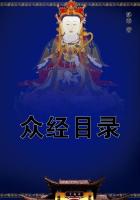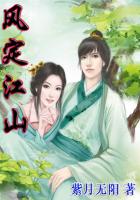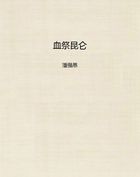"It is not needful, King," answered Zikali, "since I know what all know, neither more nor less. The winds whisper the demands of the white men, the birds sing them, the hyenas howl them at night. Let us see how the matter stands. When your father died Sompseu (Sir T. Shepstone), the great white chief, came from the English Government to name you king. This he could not do according to our law, since how can a stranger name the King of the Zulus? Therefore the Council of the Nation and the doctors--I was not among them, King--moved the spirit of Chaka the Lion into the body of Sompseu and made him as Chaka was and gave him power to name you to rule over the Zulus. So it came about that to the English Queen through the spirit of Chaka you swore certain things; that slaying for witchcraft should be abolished; that no man should die without fair and open trial, and other matters."
He paused a while, then went on, "These oaths you have broken, O King, as being of the blood you are and what you are, you must do."
Here there was disturbance among the Council and Cetewayo half rose from his seat, then sat down again. Zikali, gazing at the sky, waited till it had died away, then went on--"Do any question my words? If so, then let them ask of the white men whether they be true or no. Let them ask also of the spirits of those who have died for witchcraft, and of the spirits of the women who have been slain and whose bodies were laid at the cross-roads because they married the men they chose and not the soldiers to whom the king gave them."
"How can I ask the white men who are far away?" broke out Cetewayo, ignoring the rest.
"Are the white men so far away, King? It is true that I see none and hear none, yet I seem to smell one of them close at hand."
Here he took up the skull which he had laid down and whispered to it. "Ah! I thank you, my child. It seems, King, that there is a white man here hidden in this kloof, he who is named Macumazahn, a good man and a truthful, known to many of us from of old, who can tell you what his people think, though he is not one of their indunas. If you question my words, ask him."
"We know what the white men think," said Cetewayo, "so there is no need to ask Macumazahn to sing us an old song. The question is--what must the Zulus do? Must they swallow their spears and, ceasing to be a nation, become servants, or must they strike with them and drive the English into the sea, and after them the Boers?"
"Tell me first, King, who dwell far away and alone, knowing little of what passes in the land of Life, what the Zulus desire to do. Before me sits the Great Council of the Nation. Let it speak."
Then one by one the members of the Council uttered their opinions in order of rank or seniority. I do not remember the names of all who were present, or what each of them said. I recall, however, that Sigananda, a very old chief--he must have been over ninety--spoke the first. He told them that he had been friend of Chaka and one of his captains, and had fought in most of his battles. That afterwards he had been a general of Dingaan's until that king killed the Boers under Retief, when he left him and finally sided with Panda in the civil war in which Dingaan was killed with the help of the Boers. That he had been present at the battle of the Tugela, though he took no actual part in the fighting, and afterwards became a councillor of Panda's and then of Cetewayo his son. It was a long and interesting historical recital covering the whole period of the Zulu monarchy which ended suddenly with these words--"I have noted, O King and Councillors, that whenever the black vulture of the Zulus was content to attack birds of his own feather, he has conquered. But when it has met the grey eagles of the white men, which come from over the sea, he has been conquered, and my heart tells me that as it was in the past, so it shall be in the future. Chaka was a friend of the English, so was Panda, and so has Cetewayo been until this hour. I say, therefore, let not the King tear the hand which fed him because it seems weak, lest it should grow strong and clutch him by the throat and choke him."
Next spoke Undabuko, Dabulamanzi and Magwenga, brothers of the king, who all favoured war, though the two last were guarded in their speech. After these came Uhamu, the king's uncle--he who was said to be the son of a Spirit--who was strong for peace, urging that the king should submit to the demands of the English, making the best terms he could, that he "should bend like a reed before the storm, so that after the storm had swept by, he might stand up straight again, and with him all the other reeds of the people of the Zulus."
So, too, said Seketwayo, chief of the Umdhlalosi, and more whom I cannot recall, six or seven of them. But Usibebu and the induna Untshingwayo, who afterwards commanded at Isandhlwana, were for fighting, as were Sirayo, the husband of the two women who had been taken on English territory and killed, and Umbilini, the chief of Swazi blood whose surrender was demanded by Sir Bartle Frere and who afterwards commanded the Zulus in the battle at Ihlobane. Last of all spoke the Prime Minister, Umnyamana, who declared fiercely that if the Zulu buffalo hid itself in the swamp like a timid calf when the white bull challenged it on the hills, the spirits of Chaka and all his forefathers would thrust its head into the mud and choke it.
When all had finished Cetewayo spoke, saying--"That is a bad council which has two voices, for to which of them must the Captain listen when the impis of the foe gather in front of him? Here I have sat while the moon climbs high and counted, and what do I find? That one half of you, men of wisdom and renown, say Yes, and that the other half of you, men of wisdom and renown, say No. Which then is it to be, Yes or No? Are we to fight the English, or are we to sit still?"
"That is for the king to decide," said a voice.
"See what it is to be a king," went on Cetewayo with passion.
"If I declare for war and we win, shall I be greater than I am?















